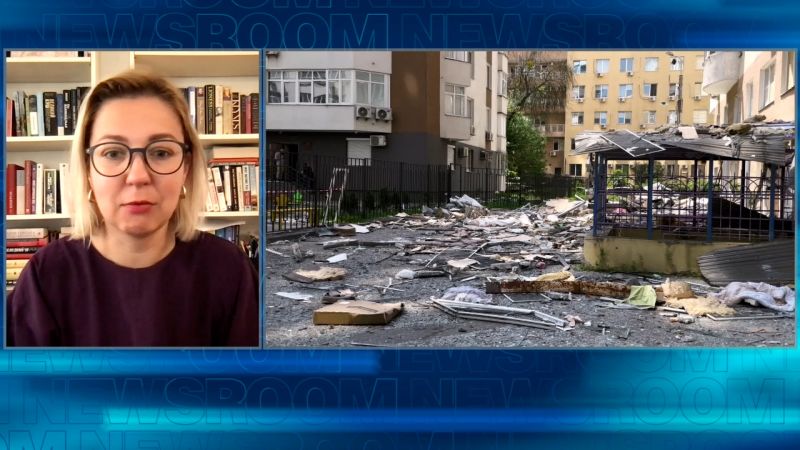Ukraine attacks try to put Russia in a position of weakness
It’s been a remarkable week in the war in Ukraine, with Ukraine taking it to Russia in a bigger way than ever. First, a fleet of Ukrainian drones, deployed inside Russia in a stunning intelligence operation, struck several Russian military airfields, destroying or disabling anywhere between 12% and 34% of Russia’s strategic bombers, putting a dent in Russia’s nuclear capability. Two days later, an underwater explosion damaged the Kerch Bridge connecting the Russian mainland to annexed Crimea. The latest reported Ukrainian strike is at one of Russia’s Iskander ballistic missile systems.
Could these daring operations change the course of the war, and what does it mean for the prospect of peace talks?
Ukraine’s latest successes should certainly cool the "Ukraine is losing the war" narrative, assiduously peddled by the Kremlin appeasement crowd and uncritically accepted even by many people whose sympathies are in the right place. The strike at Russian bombers, 18 months in the planning, showed remarkable effectiveness and discipline on the Ukrainian side — and capped months of highly successful drone warfare. The extent to which it damaged Russian military capacity remains to be seen, but it dealt Russia and Vladimir Putin a massive psychological blow, as the frenzy among Russian propagandists shows. Putin himself has yet to mention the airfield attacks, instead accusing Ukraine of "terrorism" for allegedly causing a deadly passenger train crash in Russia.
A few Western anti-Ukraine commentators have tried to claim that the strike was a sign of Ukrainian weakness, since it’s meant to compensate for a deteriorating or even collapsing situation on the ground. But that’s nonsense. There is no collapse of Ukrainian defenses. If Russia has made marginally more gains in Eastern Ukraine in the past month than in previous months, it’s because it has been escalating the so-called "meat assaults" — a graphic term that refers to sending wave after wave of soldiers to seize a patch of land with no regard for casualties. With soldiers still recovering from wounds being forced into assault units, these tactics have grown so brutal that even some of Russia’s war-hawk bloggers are complaining.
Yet, despite Russia’s considerable manpower advantage in some sectors of the front, and a willingness to sacrifice its men, Russian troops are still advancing very slowly — and Ukrainian forces are pushing them back in some areas. It’s unclear how much of a summer offensive Russia can sustain given its losses not of men but of equipment. And the successful strikes inside Russia are likely to boost Ukraine's morale on the battlefield.
This is a good moment for Ukraine’s Western allies to step up assistance — as Europe seems to be doing. Unfortunately, President Donald Trump seems determined to draw out the charade of "peace talks" in Istanbul, where Russia has continued to make intransigent demands for Ukraine’s de facto surrender. Trump has continued to treat Putin and the Ukrainian government as equal obstacles to peace. He seems to have gone along with Putin's statement in a phone conversation that he would make retaliatory strikes — which he has, against civilians. And now, Trump is asking the Senate to postpone a bipartisan bill that would impose harsh new sanctions targeting Russia’s energy exports.
Trump reportedly still hopes for a peace deal that will make him look good. But the truth is that this will not happen until Russia is in a position of weakness. Ukraine did a great deal this week to force Russia into that position. The United States should do its part.
Opinions expressed by Cathy Young, a writer for The Bulwark, are her own.

Cathy Young is a writer for The Bulwark.











